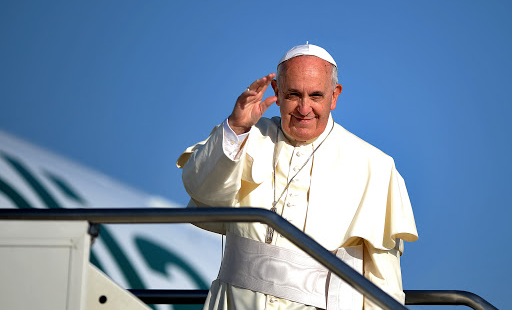Public displays of friendly co-existence with some religions does not absolve a dictator of his repression and harassment of others. Pope Francis is traveling next month to Bahrain to visit the Catholic community living there and where the religious majority of that country’s citizens are purposely kept down through religious discrimination, harassment, and by force. Americans for Democracy and Human Rights in Bahrain calls on Pope Francis to reconsider this visit due to the rampant discrimination against Shia in Bahrain or to raise attention to these violations if he chooses to follow through with the visit.
When one nation of people are put down by a dictator and made to pass through life without common freedoms, it undermines the rest of the free world. When leaders extend friendship to tyrants without insisting on important changes, it undermines the rest of the free world. If a President or a Pope shrinks away from the hard conversation of challenging the violence and subversion of a dictator, freedom of conscience and speech and opinion are undermined everywhere.
Mankind is born with a free mind and with this, are free to worship however their conscience sees fit. Shia Muslims – the majority population of Bahrain – are not free to worship as they see fit without enduring discrimination from their government; the religious experience of Shia Muslims in Bahrain under the Al-Khalifa dictatorship is characterized by direct government discrimination and harassment. This is not accidental or entirely a matter of cultural bigotry; the religious discrimination by Bahrain’s ruling family against this majority population is a checkpoint in the Al-Khalifa objective of keeping themselves in power.
Since the pro-democracy demonstrations in 2011, the government has prohibited all forms of religious demonstrations, marches, and assemblies, along with funeral processions, and citizens are targeted during one of the most important Shia religious commemorations “Ashura” through the forced removal of banners and summoning of religious figures for questioning regarding performed sermons.
In prison, political prisoners, especially ones belonging to the Shia sect, face harassment and mistreatment in relation to their beliefs, while the prevalent culture of impunity prevents any form of accountability. Recently, Sheikh Abduljalil Al-Muqdad, a 62-year-old prominent opposition figure tortured and imprisoned for his involvement in the 2011 pro-democracy movement, was attacked and subjected to ill treatment. After four years of intentional medical negligence, he received a medical appointment. However, an officer attempted to force him to go to the clinic even after he learned that the doctor would not be present. When Sheikh Abduljalil refused since he would not be receiving any treatment, at least four officers attacked him, insulted him, and tried to force him to sign a statement indicating that he refused treatment. The inhumane treatment Sheikh Abduljalil has been suffering from, since his arrest, takes on a sectarian nature.
It is not insignificant that the U.S. State Department, in its Report on Religious Freedom in Bahrain, placed the stand-alone sentence stating “Because religion and political affiliation are often closely linked, it was difficult to categorize many incidents as being solely based on religious identity.” 51 specific cases of religious repression, discrimination, or harassment by the Bahraini government in 2021, could not be considered exclusively religious discrimination because religious discrimination is used by the monarchy as a means of political control. Many of the victims of their religious harassment are the would-be democratic leaders of a modern Bahrain, the people who would and do challenge the tyranny of one-family rule.
The U.S. State Department report notes “the government continued to discriminate against Shia citizens and to give Sunni citizens preferential treatment for scholarships and positions in the MOI and military.” This is not how religiously tolerant and modern states are described.
The Bahraini Constitution guarantees one’s right to manifest their religion in public or private places. However, in practice, Shia Muslim worshippers have been summoned, arrested, and forced to sign pledges, even detained and sentenced for practicing their religious rituals.
The religious rights enumerated in the country’s laws are only an act of subterfuge, printed on paper as a means for the Bahraini ruling family to access the benefits of friendship with more powerful world leaders and obscure the misery of their human rights abuses.





